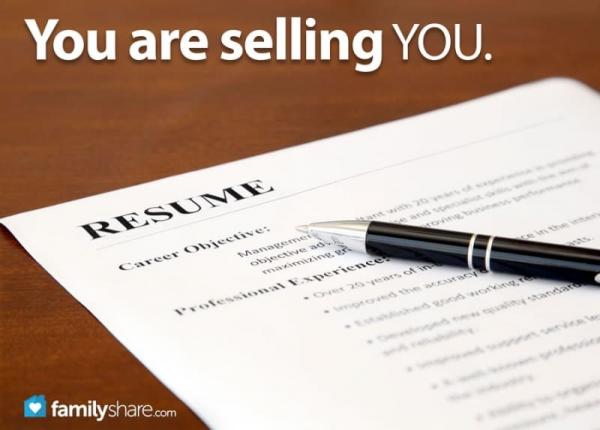
In today's job market competition is tough. There are many ups and downs in everyone's career and you never know when you may need a resume. Let's take a look at the most important things to remember to include when writing your resume.
1. You are selling YOU
Put your best foot forward, be honest, don't be too modest, but at the same time don't be too cocky. If you were hiring someone for the job you want, what would you be looking for?
2. Use action words
Committed, enhanced, gathered, fulfilled, obtained and published are great words to use to explain your work at previous jobs and your skills.
3. Avoid overused words and phrases
Your goal is to differentiate yourself from other candidates. Avoid words like team player, motivated, dynamic and assisted. A good way to find similar words that may be a better choice is to use a thesaurus, or do some research on what employers like to hear from your specific field.
4. Use key terms
Some employers only interview people whose resumes include certain terms such as, "Associate Degree" or "Bachelor Degree." Be sure to include the names of any specific programs you feel you are proficient in using.
5. Format correctly
Divide your resume into sections such as education, jobs, skills and anything else you find relative to your career. Out of those sections, put your strongest section first. Then, divide them chronologically for jobs and education (newest first). Alphabetize your skills. Keep your resume to only one page. Make sure you use your white space correctly and don't trap it in the middle of your page.
6. Create a cover page
Your cover should also include your name, all contact information, and a short introduction to who you are and what your major goal is for obtaining the new job. Your cover page and resume page should contain elements of repetition. Between the two, use a total of only two fonts.
7. If you can't design, use a template
Check out http://office.microsoft.com/en-us/templates/ and search for resumes. Using a resume template will allow you to have a professional looking resume and focus on the writing, rather than the design.
8. Create a LinkedIn account, a professional website, and/or a video resume
Many employers will search for you on social media, having a LinkedIn account shows that you want to put more information out there for your employers to view. When it comes to Facebook, beware that if you post anything negative, use profanity or have embarrassing photos, your employers may be able to see it based on your specific privacy settings.
9. Read the entire job description before submitting your resume
After reading the description you'll be able to include jobs and skills directly related to the job you're applying for.
10. Double check everything and keep it current
Make sure you read everything multiple times to check for errors. Know what format you should submit your resume in. (Sometimes submitting a PDF is a good choice.) Before sending your resume off, have a friend read over your document for spelling errors. As soon as you get a new job, feel free to add it and your current position to your resume.
Remember to print your resume off the night before your interview to be sure it will look nice. To add another element you could even buy a project portfolio cover to place your resume and cover letter in. Good luck in the job search!

